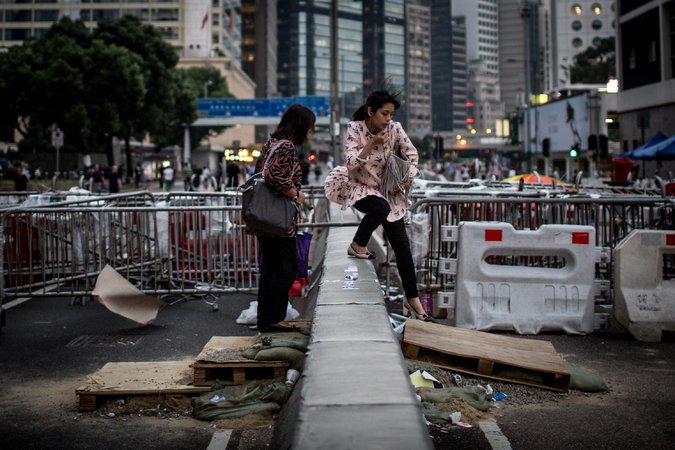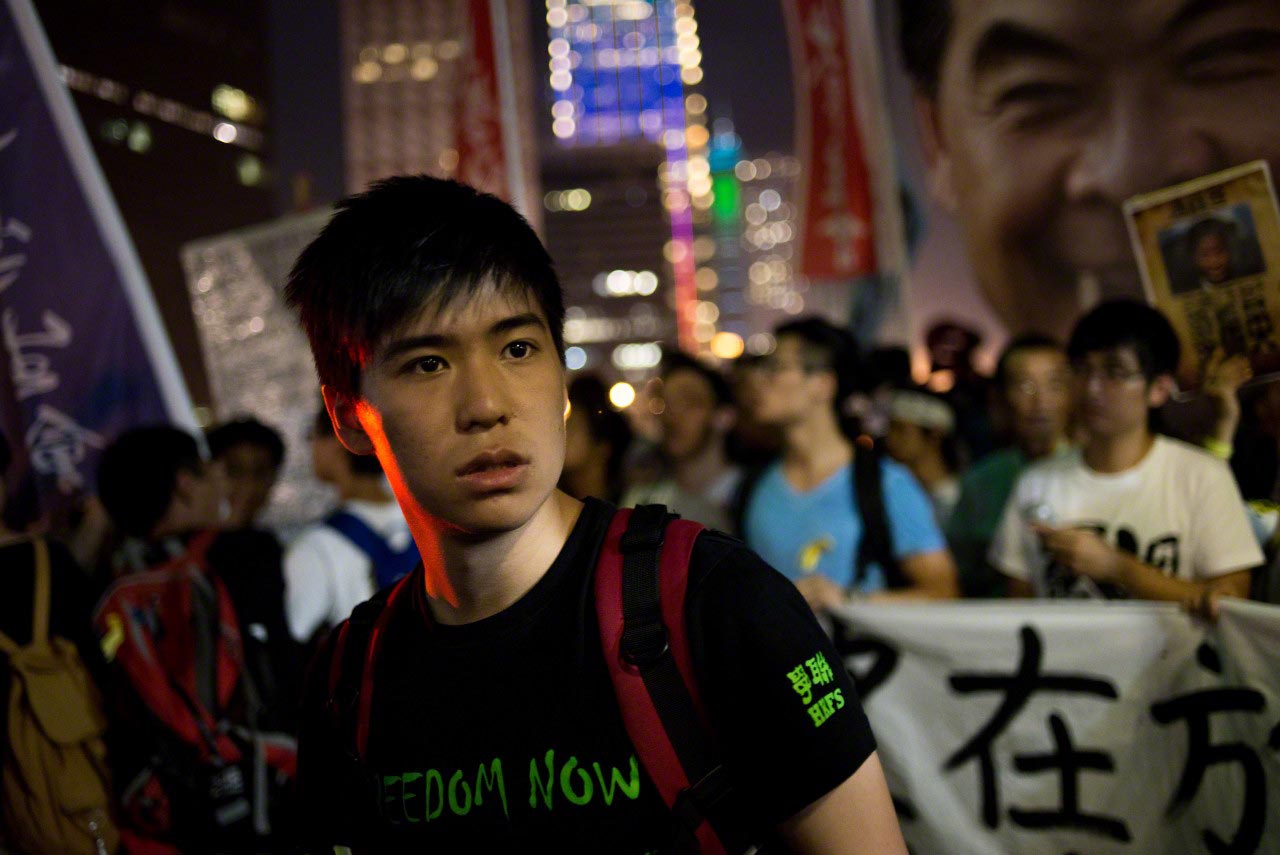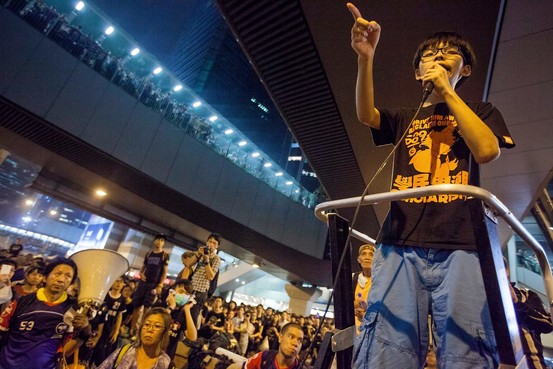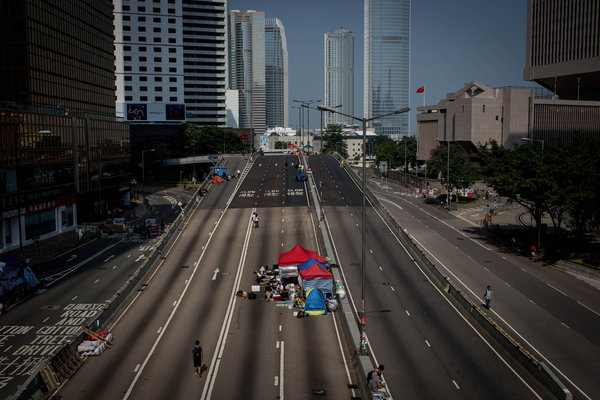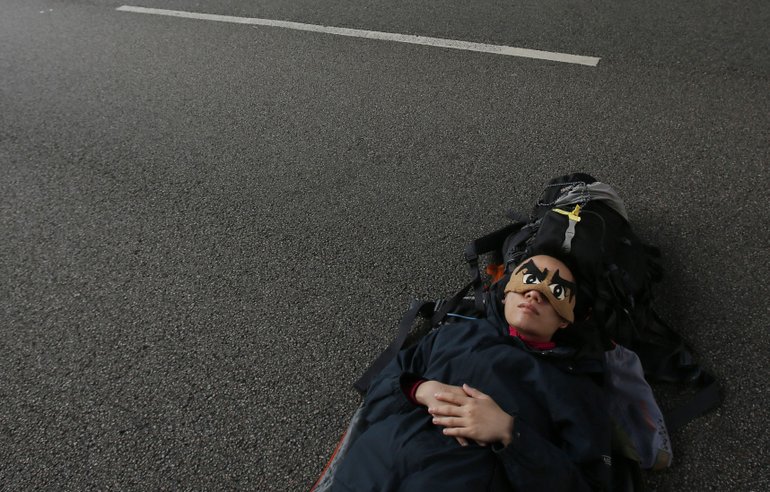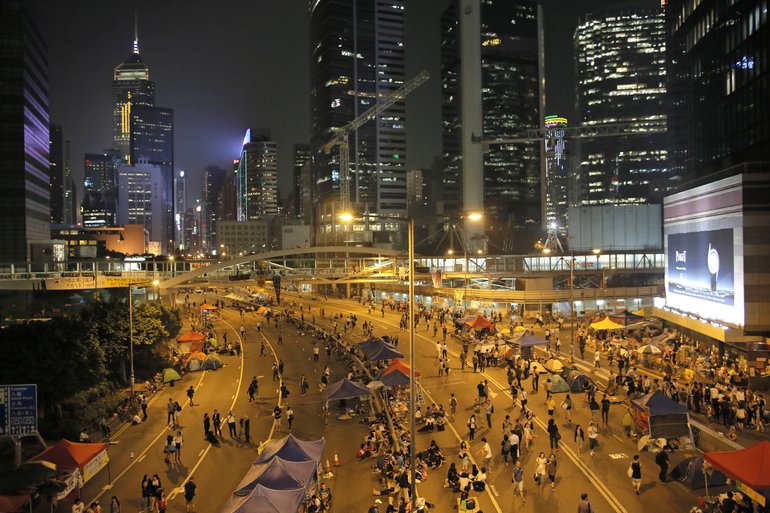A Week After Pro-Democracy Movement, Hong Kong Officials And Protesters Agree To Talk
The government and students leaders announced they will begin talks on political reform on Friday.
On Tuesday, Hong Kong's Government and the student groups responsible for huge protests that have attracted worldwide attention agreed to hold negotiations on the future of democracy
Makeshift stairs at a barricade blocking a main road into a Hong Kong protest site on Tuesday
Image via nyt.comIn a preliminary session late Tuesday, government negotiators and student leaders agreed that the formal talks set to begin on Friday would address how to change the electoral system, within the framework of the Basic Law, the mini-constitution that governs Hong Kong. The local authorities and the central government in Beijing have insisted that the changes the students seek are against those rules.
At stake is the method by which Hong Kong’s top official, the chief executive, is chosen. In late August, China’s legislature restricted candidates for chief executive to those picked by a committee dominated by Beijing loyalists, provoking the protests that exploded on Sept. 28. The students and many of the thousands of Hong Kong residents who demonstrated with them over the past week and a half want nominations to be open, allowing voters, not a committee or a political party, to put forward candidates.
Some students, however, immediately expressed disappointment at the narrow range of the planned discussions.
“We are very disappointed and angry,” Lester Shum, deputy secretary general of the Hong Kong Federation of Students, told reporters. He said the government was “not sincere” in its approach to the talks and was resorting to legal arguments instead of facing the central political problem in Hong Kong: a government answerable to Beijing instead of to the citizens of the territory.
washingtonpost.comShum told reporters he was disappointed that the talks would be limited to the current legal basis of reform. The Hong Kong Federation of Students said it was planning further civil disobedience in order to keep up pressure on the government. The group declined to offer details on the timing or nature of future actions.
Joshua Wong, the 17-year-old bespectacled student who has become face of the movement, while urging his fellow citizens to keep up the pressure, said he was not optimistic about the talks
“The government said the topic is just about the structure or the system of the law,” he said in an interview. “That is not what the activists expect after receiving violence from the police.”
washingtonpost.comWith the Government demanding that streets be cleared by the start of business this week and calls from some protest supporters to scale back the sit-ins, the number of demonstrators has dwindled drastically, but many barricades have been maintained
A small group of protesters remained outside Hong Kong government offices on Tuesday
Image via nyt.comFollowing a familiar pattern established last week, by nightfall on Tuesday the number of people in the protest zones was swelling again as supporters returned from work and school — but remained much lower than in previous days.
At dinnertime, more than 200 people were in the protest zone in Causeway Bay, a neon-lit shopping district. Many of those inside the zone — which in normal times is a busy thoroughfare for cars, trams and buses — were looking at their cellphones. A few slept on plastic sheets.
In the morning, the number of people camped out on Harcourt Road near the office of the chief executive, Leung Chun-ying, whose resignation many protesters have called for, appeared to be no more than 100. The scene in Mong Kok, across Victoria Harbor in Kowloon, was similar. Protesters numbered only in the dozens, with their copious provisions — tents, crates of food, water bottles — giving the illusion of a much larger crowd.
While crowds have fallen sharply since last week, 14-year-old Keith Pom still sat in his school uniform studying a physics textbook just before midnight, joining the movement against what he said were the wishes of his parents
A pro-democracy student protester sleeps on an occupied roadway surrounding the government complex in Hong Kong on Tuesday
Image via ellingtoncms.com“The chance of success is very small,” he admitted. “The central government [in Beijing] has decided, and they won’t change their minds.”
washingtonpost.comNearby, Cecilia Lee, a 54-year-old human resources executive, prepared for another night at the site with her retired husband already sleeping by her side. “I am so proud to have participated in this. It’s the spirit of the students, the civic spirit without violence, it has awakened an awareness about politics and a commitment to fight for their rights,” she said, before admitting that she was worried about how the movement would end.
washingtonpost.com“I don’t think Beijing will give up anything, and I want the students to end this gracefully, but it is difficult for them to accept that.”
washingtonpost.comHui Chan-tak, the chief spokesman of the Hong Kong Police, called on Tuesday afternoon for an end to protests in Mong Kok
The heart of Hong Kong's business district where demonstrators are blocking streets in Hong Kong on Tuesday
Image via ellingtoncms.comHe strongly criticized protest leaders for suggesting that their supporters remain there. “I urge students to leave for their own safety,” he said.
Michael C. Davis, a law professor at Hong Kong University, said that the movement should "declare victory" and end the sit-in now, rather than have it dwindle and allow the police to end it with a simple clearing operation
That way, he said, organizers can preserve the threat of future movements to get more leverage in talks with the government, a tactic he said was used by Poland’s Solidarity labor movement in the 1980s. “I think they moved the needle a little because they shocked the government,” Mr. Davis said in a telephone interview. “But to turn it into a victory there are more steps to take, and I think just lingering on the street isn’t necessarily going to get them there.”
